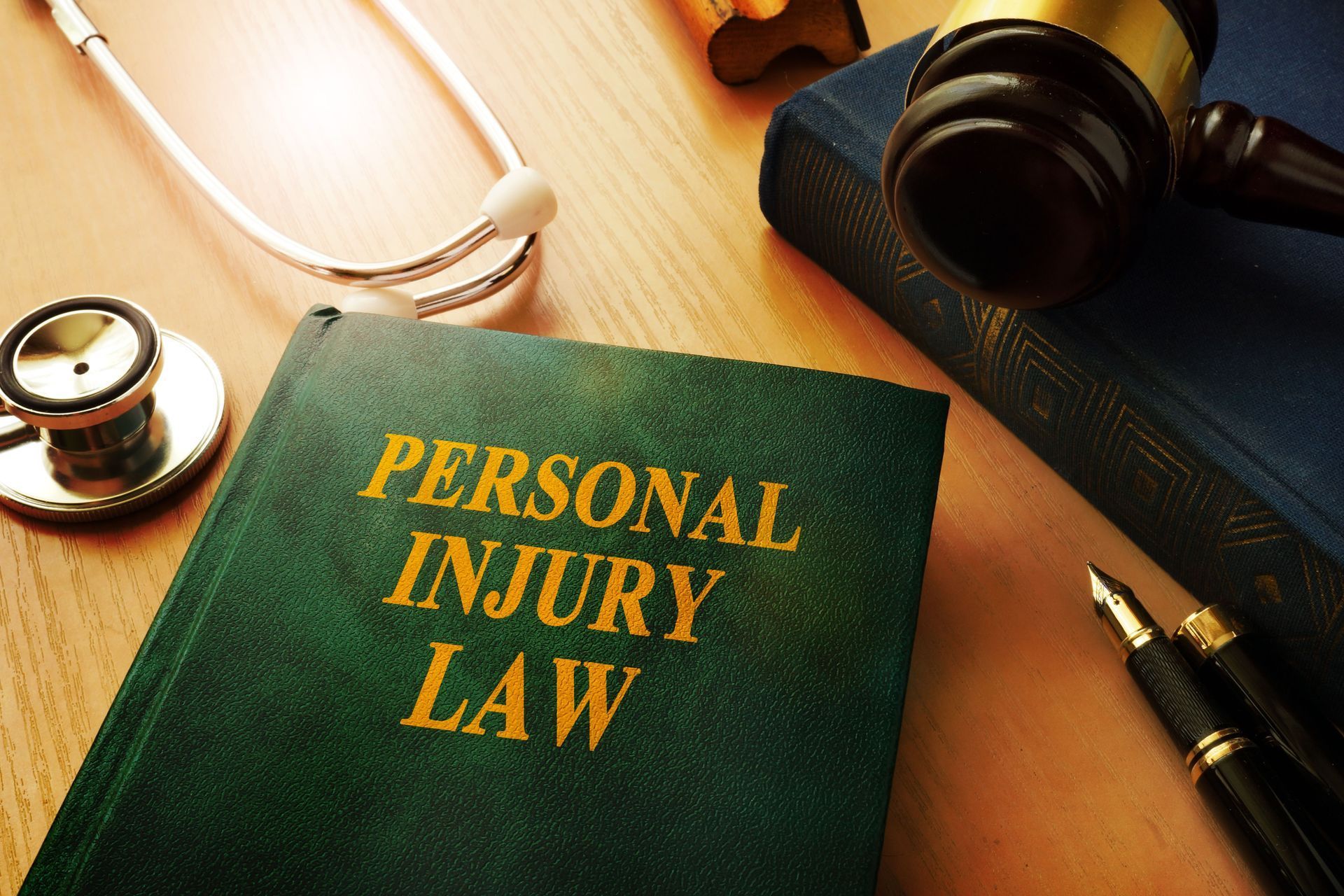6 Questions to Ask Your Local Injury Lawyer
Understanding the process of hiring a local injury lawyer can be daunting. Therefore, it is crucial for potential clients to equip themselves with the right questions to ask. This guide aims to clarify the essential questions you should pose to your prospective local injury lawyer. By ensuring a knowledgeable and experienced legal representative, you can increase the chances of successfully navigating your case. Selecting the right lawyer can significantly impact the outcome and provide peace of mind during difficult times.
1. What Is Your Experience With Injury Cases?
Understanding the Background
It is important to start with the basics by understanding the lawyer's professional background. Ask about education, certifications, and how long they have been practicing. This information shows experience as well as dedication to personal injury law specifically. Additionally, knowing whether they continue their education through seminars or workshops can indicate a commitment to keeping up with legal trends. This diligence can be indispensable in navigating the complexities of injury cases.
The Types of Injury Cases Handled
An essential question involves understanding the specific types of injury cases they handle. If your case involves a car accident or medical malpractice, you will want an attorney experienced in such areas. This experience means they are familiar with the nuances and potential pitfalls that could arise. A lawyer whose main focus is personal injury cases tends to be well-versed in relevant precedents and statutes. According to Clio, personal injury cases are a significant part of the legal system, with over one million injuries requiring medical treatment annually in the United States.
2. How Do You Approach Client Communication?
The Preferred Communication Channels
Everyone has different preferences for communication, and it is important to align with yours. Some lawyers may prefer emails for documentation purposes, while others opt for phone calls for immediacy. Determining these preferences ahead of time ensures no misunderstandings around communication style. Furthermore, this alignment improves the efficiency of discussions and helps ensure deadlines are not missed. Communication preferences are a simple but critical aspect of the overall relationship management strategy.
The Expectations for Response Time
Nothing is more frustrating than sending inquiries and waiting indefinitely for a response. Hence, understanding a lawyer’s typical response time is essential to maintaining open lines of communication. Timely responses often reflect an organized practitioner able to manage multiple clients effectively. It is important to ensure that your local injury lawyer can meet these expectations, particularly if case-sensitive issues arise. This respect for your time enhances confidence and satisfaction in the process.
3. What Are Your Fees and Billing Practices?
How Contingency Fees Protect Clients
Personal injury law firms often work on contingency, meaning you do not pay upfront. Instead, fees are collected only if your case is successful. This structure ensures that individuals from all financial backgrounds can pursue justice without taking on additional financial strain. Transparency about percentages and case-related expenses keeps you informed every step of the way. It also encourages your local injury lawyer to remain dedicated to pursuing a positive outcome.
The Payment Schedule
Establishing a clear payment schedule based on the progression of your case provides certainty for both sides. Find out whether fees are due at specific stages of the case or only upon its conclusion. This information helps with financial planning while ensuring the continuous progression of your case. Make sure payment terms are documented and agree on any potential amendments. This documentation helps you avoid disputes later in the process and promotes clear expectations.
4. What Is Your Strategy for My Case?
The Initial Evaluation and Case Assessment
Start by exploring the lawyer's initial evaluation of your case to understand the baseline. Ask about the perceived strengths and weaknesses from their professional perspective. A thorough assessment provides insight into potential outcomes and strategies. This detailed overview often highlights the viability and worthiness of pursuing certain legal avenues. It is insightful for both you and the lawyer to align on expectations and objectives from the start.
The Outline of the Legal Approach
Discuss the overall strategy they plan to use for your case. An effective legal approach involves clear outlines and flexible capabilities to adapt when new developments arise. A lawyer should be able to explain the step-by-step process they think best fits your circumstances. This transparency allows you to follow and understand crucial steps, building confidence in the process. The proposed strategy can provide valuable guidance and ensure both parties are aligned before proceeding.
The Role of Expert Witnesses and Evidence Gathering
The role of expert witnesses and the process of evidence collection can be critical elements in injury cases. Discussing how the lawyer intends to gather evidence provides insight into thoroughness and resourcefulness. The ability to access relevant expert testimonies demonstrates a commitment to building a strong case. Each piece of evidence should align with the legal strategy and contribute to a clear, compelling argument. This diligence prepares your case for inevitable scrutiny and challenges during the process.
5. Can You Provide References or Client Testimonials?
The Importance of Client Feedback
Learning from past client feedback offers significant insights into a lawyer's performance and service quality. Testimonials help evaluate client satisfaction by providing a deeper understanding of strengths and weaknesses. This feedback serves as a reference for prospective clients making informed decisions. A lawyer confident in ability and service will willingly share references or testimonials. These perspectives help evaluate compatibility and overall effectiveness as a legal representative.
The Process of Evaluating Recommendations
While lawyer recommendations offer potential insights, it is vital to evaluate them critically. Assess the credibility of references and the relevance to your specific case needs. Consider whether the testimonials reflect consistency in delivering satisfactory outcomes. Weigh positive and negative feedback, focusing on the details most pertinent to your concerns. This balanced analysis provides a stronger foundation for choosing a local injury lawyer who aligns with your expectations.
The Access to Public Reviews
Explore and discuss where to find public reviews or third-party endorsements online. Lawyers reviewed by past clients on platforms such as Avvo or Google often reflect a broad spectrum of experiences. Check if any disciplinary actions or awards are listed, as this provides a fuller picture of their background. When reading reviews, prioritize patterns over isolated anecdotes to avoid skewed perceptions. This due diligence ensures transparency and helps confirm your confidence in the local injury lawyer you select.
6. What Is Your Approach to Client Respect and Care?
The Understanding of Client Needs
Determine how the lawyer prioritizes and understands your specific needs and concerns. A strong attorney-client relationship is often built on a foundation of understanding and shared goals. Lawyers should take time to listen and address unique aspects of your case, tailoring their approach accordingly. The ability to empathize with your situation indicates a higher level of care and commitment. Recognizing this alignment sets the stage for effective collaboration and improved client satisfaction.
The Respect for Client Time
Ensure the lawyer values your time and commitments when scheduling meetings. Timely and efficient appointments respect your schedule and demonstrate that the lawyer values your involvement. It prioritizes concise communication, maintaining engagement without unnecessary delays. Efficient time management fosters collaboration and reflects a lawyer's organizational skills. This respect is central to a professional and supportive legal relationship, securing mutual satisfaction with the process.
Selecting the right local injury lawyer requires careful consideration of experience, approach, and communication style. Asking the right questions helps you find representation that truly fits your needs and priorities. Beyond credentials, the right attorney should be someone who understands your situation and is committed to pursuing a positive outcome. If you are ready to take the next step, learn more about how Michael J Glassman & Associates LLC can guide you through your case with our skill and our dedication.









